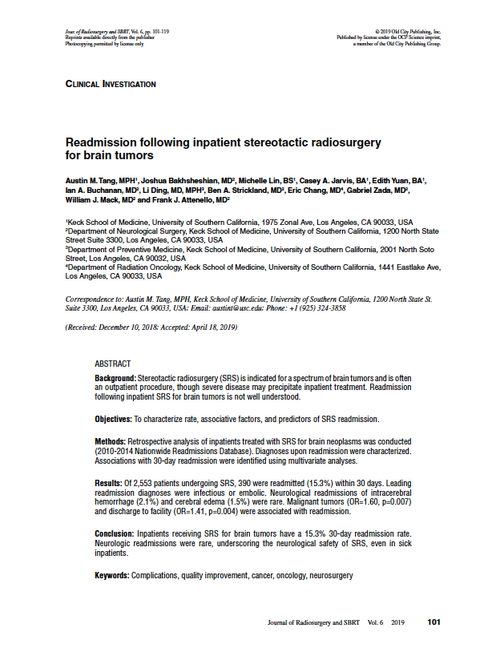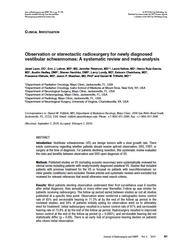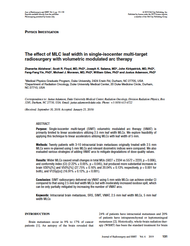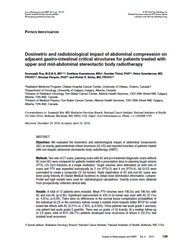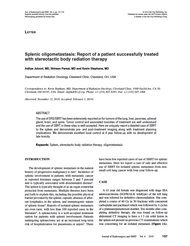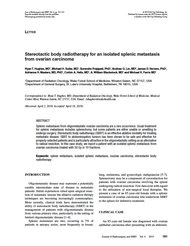- Home
- Journal Contents Downloads
- JRSBRT Downloads
- JRSBRT 6.2, p. 101-119
Product Description
Readmission following inpatient stereotactic radiosurgery for brain tumors
Austin M. Tang, Joshua Bakhsheshian, Michelle Lin, Casey A. Jarvis, Edith Yuan, Ian A. Buchanan, Li Ding, Ben A. Strickland, Eric Chang, Gabriel Zada, William J. Mack and Frank J. Attenello
Background: Stereotactic radiosurgery (SRS) is indicated for a spectrum of brain tumors and is often an outpatient procedure, though severe disease may precipitate inpatient treatment. Readmission following inpatient SRS for brain tumors is not well understood.
Objectives: To characterize rate, associative factors, and predictors of SRS readmission.
Methods: Retrospective analysis of inpatients treated with SRS for brain neoplasms was conducted (2010-2014 Nationwide Readmissions Database). Diagnoses upon readmission were characterized. Associations with 30-day readmission were identified using multivariate analyses.
Results: Of 2,553 patients undergoing SRS, 390 were readmitted (15.3%) within 30 days. Leading readmission diagnoses were infectious or embolic. Neurological readmissions of intracerebral hemorrhage (2.1%) and cerebral edema (1.5%) were rare. Malignant tumors (OR=1.60, p=0.007) and discharge to facility (OR=1.41, p=0.004) were associated with readmission.
Conclusion: Inpatients receiving SRS for brain tumors have a 15.3% 30-day readmission rate. Neurologic readmissions were rare, underscoring the neurological safety of SRS, even in sick inpatients.
Keywords: Complications, quality improvement, cancer, oncology, neurosurgery
After payment has been processed for your order of a digital copy (PDF) of this article, you will see a download link on your completed order page and also receive an email containing a download link. The links, which will enable you to download one copy of the article, will expire after 24 hours.
 Loading... Please wait...
Loading... Please wait...

